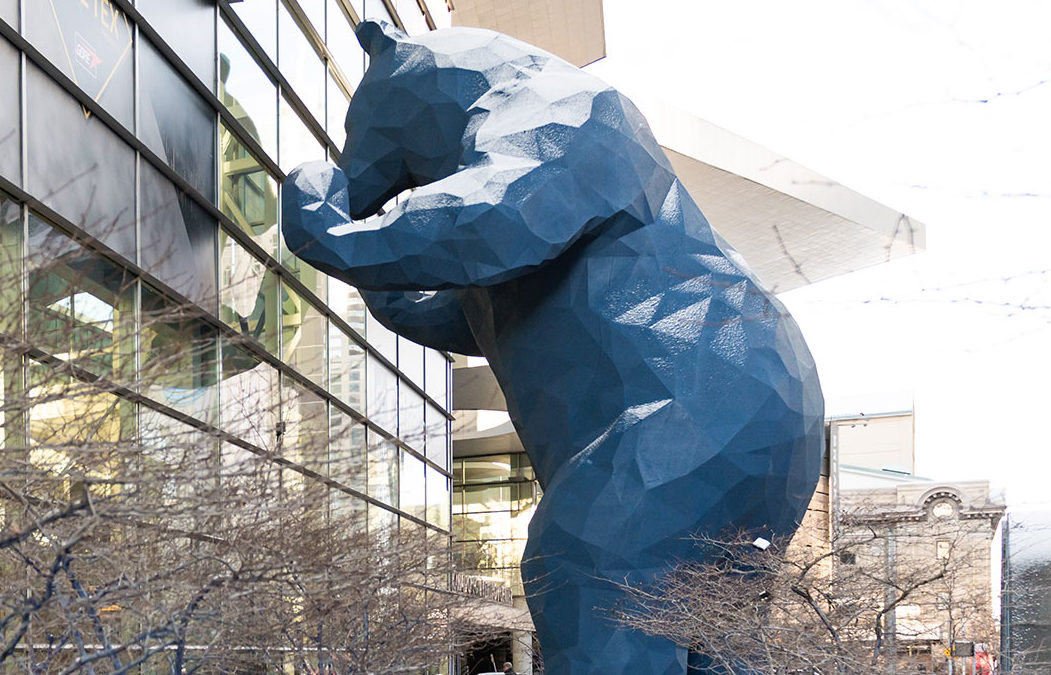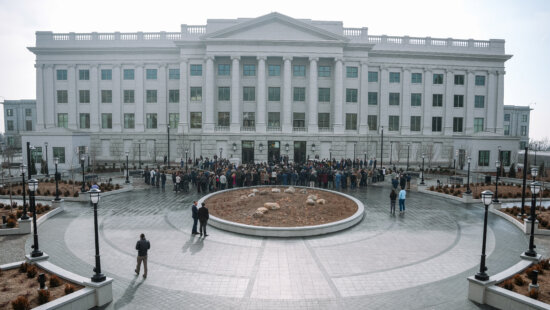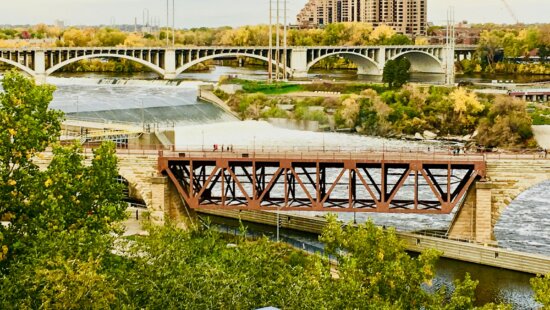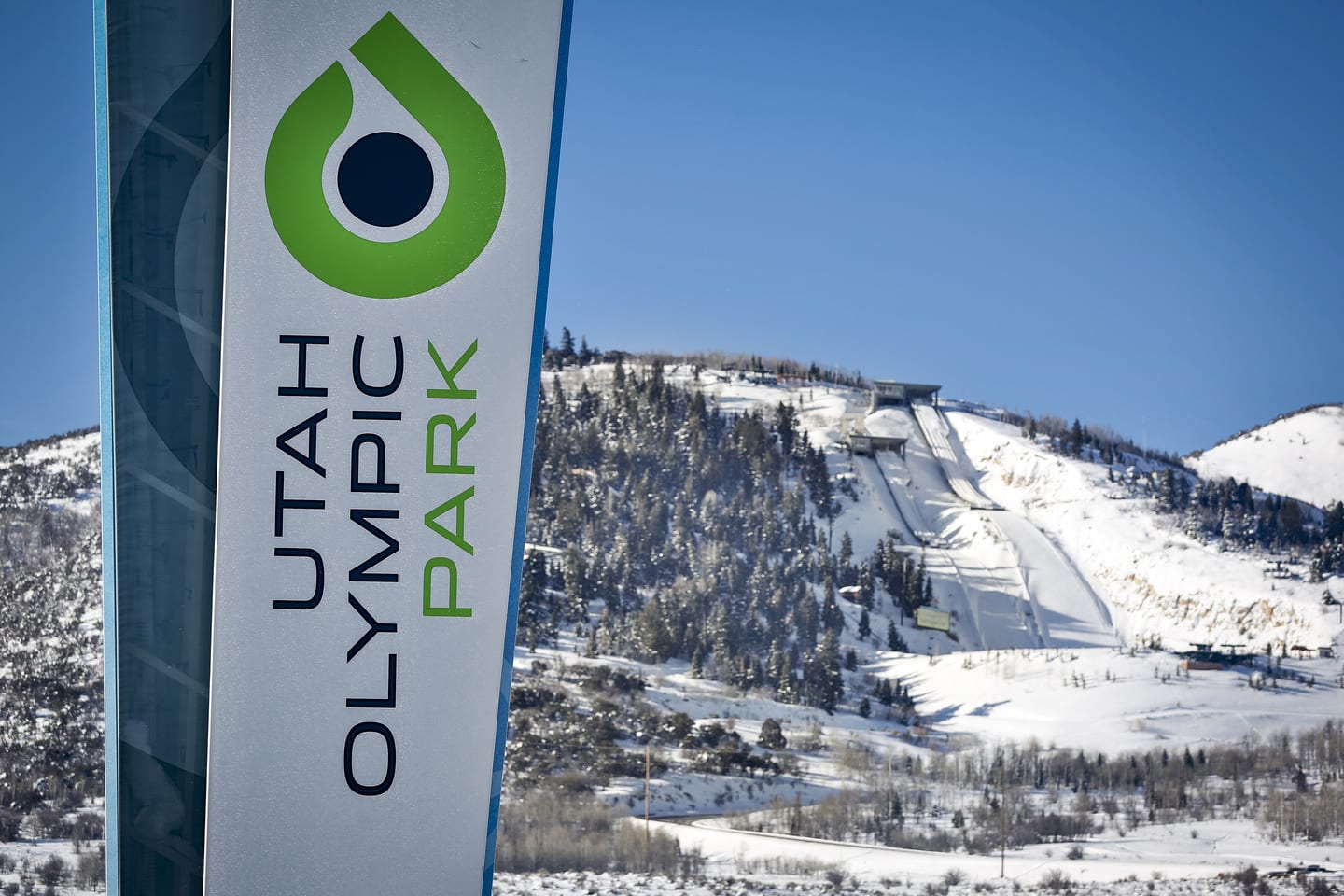Business
Political, business trends threaten Outdoor Retailer’s future

Outside of the Colorado Convention Center in Denver. Photo: Outdoor Retailer
DENVER — The owner of a ski company leans against a wall of his skis, arranged just so to dazzle passersby.
“What am I doing? I feel like I’m wasting my time,” said Ted Eynon, the owner of Meier Skis. “Man, this ain’t what it used to be.”
The Outdoor Retailer Snow Show was a shadow of itself at Denver’s Colorado Convention Center last month. Maybe one third of the size it was in 2019. Coronavirus is the easy scapegoat.
But historical schisms in the outdoor community are re-emerging and threatening to tear apart not just an event that, before the pandemic, drew tens of thousands of buyers, sellers and outdoor community leaders. The fight over the future of Outdoor Retailer (OR) threatens an energized outdoor community that is influencing national policy on public lands, climate and diversity.
As Denver negotiates a new long-term contract to keep Outdoor Retailer’s twice-a-year shows, Utah is courting the industry it lost in 2017 when outdoor leaders blasted the state’s position on public lands and left the trade show’s 20-year home in Salt Lake City for Colorado.
Those same outdoor businesses and community leaders remain critical of Utah’s continued opposition to restoring the Bears Ears and Grand Staircase-Escalante national monuments. Amid the political clamoring, pandemic upheaval, supply-chain challenges and a growing demand for outdoor recreation, the outdoor industry is splintering into divisive camps, threatening the carefully constructed unity that positioned the outdoor recreation community as a political and economic force capable of shifting national policy.
The major ski and snowboard brands decamped Outdoor Retailer for their own show in Utah. Winter sports people say Salt Lake City is one-third cheaper than Denver. Emerald X, the publicly traded owner of Outdoor Retailer that hosts another 141 conventions, is surveying attendees about a possible move back to Salt Lake City.
The biggest brands in the outdoors, like Burton, Patagonia, Arc’teryx and The North Face, were not around on the show floor in Denver. Many are pushing the owner of the show to include consumers, which would shift the historic business focus of Outdoor Retailer. Outdoor industry advocates who left Salt Lake City several years ago because of Utah’s support of a Trump Administration move to shrink the size of the national monuments are railing against the possibility of a return to the Beehive State.
And behind the political jockeying over public lands are retailers and manufacturers who are questioning trade shows altogether. For decades they have met twice a year to buy and sell. In the past two years of pandemic-pinched events they have learned how to wheel and deal without gathering.
“The real question here is not about Colorado versus Utah or public lands. It’s about the longevity of an industry trade show,” said Nick Sargent, the head of Snowsports Industries America, a member-owned nonprofit that hosted its once-a-year Snow Show since 1954 before selling to Emerald and merging with Outdoor Retailer in 2017.
Hundreds of ski and snowboard brands gathered in Salt Lake City for their own Winter Sports Market trade show the weekend before OR. They did not attend Outdoor Retailer Snow Show, as they did in previous years. Last summer, 421 retailers and hundreds of gear brands attended the new Big Gear Show in Utah, competing with the Outdoor Retailer Summer Market.
The winter sports brands heading to Utah wasn’t a political statement, Sargent said.
“For them, that is just good business,” he said.
Those winter brands tell Sargent that Colorado is too expensive. That’s the reason they left Outdoor Retailer and moved to the competing show in Utah, he said.
“You gotta look at this thing holistically and say what’s the issue? Well, winter sports will tell you it’s the cost. In Denver, with the unions, the space, the hotels … it’s about 33% more expensive here than Salt Lake,” Sargent said. “You’ve got values and you’ve got business. Winter sports is about business. Not to say that the values are not important because they are really, really important. But we put business first.”
But for others in the outdoor community, values eclipse dollars when it comes to trade shows. The Outdoor Industry Association has met with Emerald and told them that as long as Utah opposes President Joe Biden’s recent restoration of the Bears Ears and Grand Staircase-Escalante national monuments, the outdoor industry is wholly opposed to a trade show in that state.
“We’ve learned in the last several years in Denver that we are stronger when we are together,” Outdoor Industry Association Executive Director Lise Aangeenbrug said. “We have an economy of scale with a show that serves everyone. So the idea of having not everyone together at one show is really disturbing to us.
“At the same time, we really deeply care about public lands,” she added. “We hear that ski brands think Denver is expensive. We think the majority of our brands would have consideration for public lands override other issues.”
Many brands are asking Emerald to consider a consumer-friendly element to a revamped Outdoor Retailer in Denver. Since its inception 40 years ago, Outdoor Retailer has been a business-to-business event and closed to the public. Maybe it’s time to welcome consumers. That way the brand could highlight not just their new stuff, but their policies on climate, diversity and public lands.
“They really want to speak directly with the consumer and having a closed, for-the-industry-only show does not meet a lot of their objectives,” Aangeenbrug said. “So maybe there is a way to do both?”
Jake Roach has taken the Eagle-based QuietKat e-bike team to many trade shows in the past year, including Las Vegas’ Consumer Electronics Show and the hunting and angling Shot Show. All the shows logged record-small crowds as COVID kept people home.
He sees new people moving to Colorado for an outdoor lifestyle and he’d like to see Outdoor Retailer tap that energy. He thinks the show should remain in Colorado, but open up to more people.
“How can the show include the passion of all these people coming to Colorado? How can we make it interactive and open for all?” Roach said. “This model, right now, it feels old and stale.”
When Emerald’s Interbike bicycle trade show in Las Vegas collapsed in 2019, the Sea Otter Classic in Monterey, California, stepped up as a venue for brands, retailers and consumers to mingle around a bike race.
“Outdoor Retailer should become an experience for all,” Roach said. “That way everyone will come. That way it will be an event where, when it’s over, everyone is looking forward to the next one, not asking if they are even going to the next one.”
Marisa Nicholson, Emerald X’s director of the Outdoor Retailer shows, spent the year “taking the pulse” of show attendees. A survey in June revealed the outdoor industry is stressed about the supply chain backup of products coming from Asia impacting deadlines for both retailers and brands to make orders to stock shelves.
Before Emerald signs a new long-term agreement with Denver, Nicholson two weeks ago sent another survey to thousands of Outdoor Retailer attendees asking about dates and location for the show.
The results from those two surveys will inform a decision Nicholson said should come in the next couple weeks.
She’s balancing the business needs of manufacturers and retailers with values the industry places on public lands. “How do we make sure we are supporting one another’s business needs and these initiatives that are critical for the business and for our planet and our ability as humans to continue to connect with nature?” she asked.
Nicholson said many of the largest brands in the industry have grown into massive corporations with business models that don’t need trade shows. (That’s a commonly heard whisper in the Outdoor Retailer world: Big brands have wanted to leave the national trade shows for years and the political scrap over Utah’s public lands provides an exit strategy that enables them to look like they are leaving the shows in a noble fight.)
“But for 80% of our customers who are small and medium-sized, they don’t have those big buying groups and they have a big rep force and showrooms. They need this show to get orders written and business done,” she said.
Sargent, with SIA, said it is entirely possible to passionately support public lands and do business in Utah, where he lives.
“We have to be smarter about this and we have to use our political horsepower and we have to use our industry vote to say, maybe we will come to Utah, but if we do we have a couple caveats, we want to work on these public lands issues,” he said. “COVID showed us that we don’t really need a trade show. But we need community. We are stronger together under one roof. If we can find a location where we can be together, we are strong, our voices are better and we can achieve more.”
Eynon had a quiet show. His Denver-based Meier Skis was one of a handful of ski makers at last week’s Outdoor Retailer Snow Show. He used to be among hundreds of ski brands.
He’s not wading into the politics of public lands. He will take his 13-year-old company to any trade show where he can reach new retailers and sell more skis. But he’s making a statement in other ways.
Meier Skis, which uses beetle-kill wood harvested in Colorado for ski cores, has always been an ecologically friendly brand, Eynon said. This season he partnered with the Colorado State Forest Service to plant one sapling in a burned Colorado forest for every pair of skis he sells. Last season he cut single-use plastic from all his products and production processes.
“Look, we are not in a position to lose half our customer base, whether it’s retailers or consumers, by taking some grand stand. If us being at a show in Utah makes sense for us as a business, then we will do it,” he said. “Meanwhile, we will continue to launch meaningful, eco-friendly practices that are making a difference.”




















